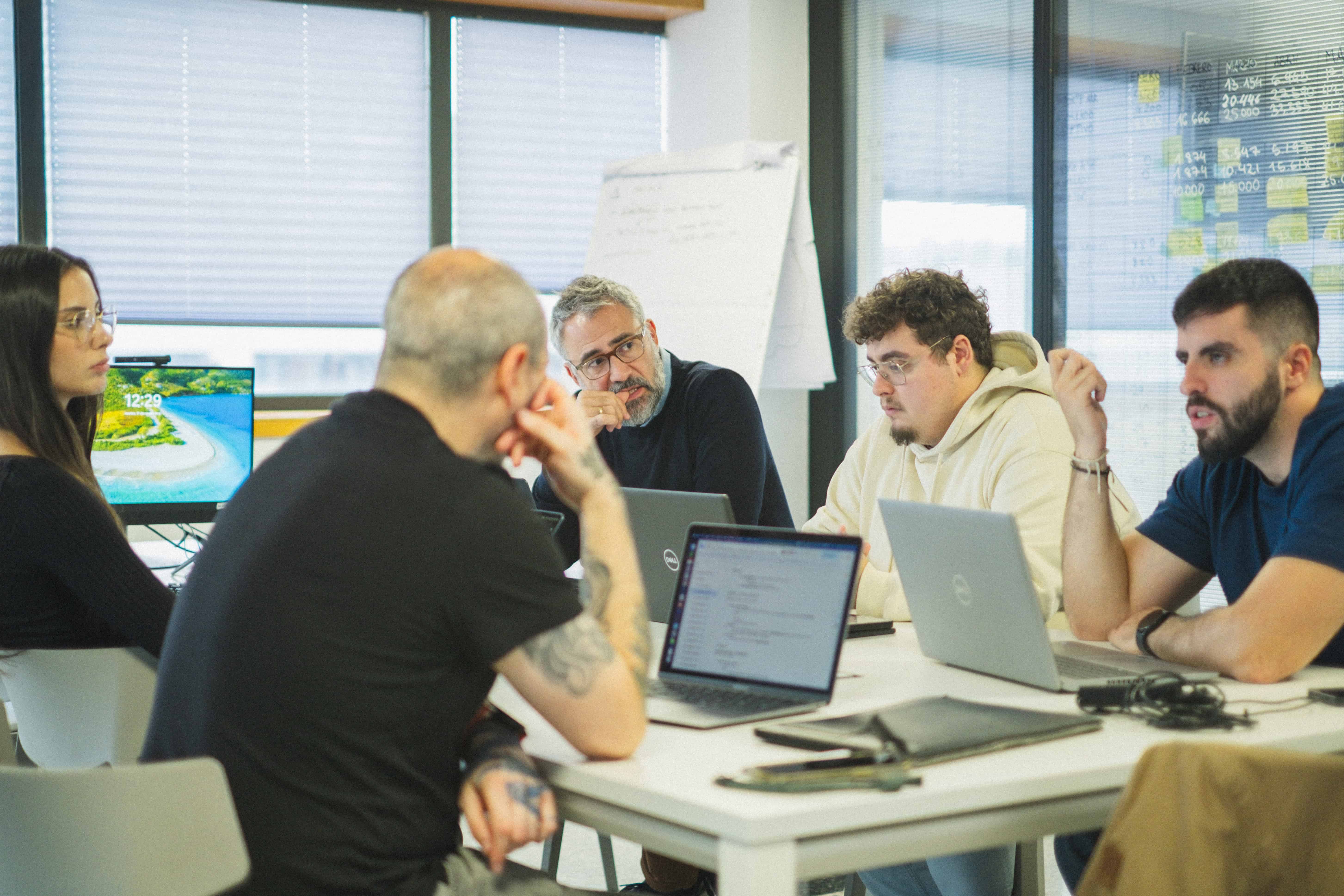What happens after the demo day: the challenges and opportunities of startups after the acceleration

The demo day is usually presented as the goal of any acceleration program: that moment in which startups condense months of work into a presentation to investors, corporations and ecosystem agents. It's a day full of expectation, where each team has just a few minutes to convince that their proposal can change the rules of the game. However, the reality is that demo day doesn't usually stand out in these stories because it's not about the finish line, but the starting line. This is how we see it from Santalucía Impulsa.
What happens next rarely has the same media focus, but that's where the real future of each company is at stake. Once the formal support is over, the challenge comes to consolidate what has been learned, to find a place in the market and to answer key questions: how to access the first customers? , how do you scale without losing agility? or how to attract the right investors? For many startups, this transition is a leap into the void that tests not only your business model, but also the strength of your team and the clarity of your purpose.
Access to the market: from the prototype to the real customer
One of the most immediate challenges after an acceleration program is to turn a prototype into a product that customers are willing to pay for. The dynamics of the accelerator provide tools, contacts and methodologies, but definitive validation always occurs in the market. Getting those first corporate customers can be the difference between moving forward and falling by the wayside. Here, the credibility of having gone through a serious program is an advantage, but it doesn't guarantee anything: what matters is the ability to solve a real problem better than anyone else.
In addition, in regulated or highly competitive sectors, such as insurance, finance or health, barriers to entry are high and decision-making processes are lengthy. For a young startup, keeping up the pace while waiting for a response can be exhausting. Therefore, having the support of the corporation that supported it from the beginning can pave the way and facilitate the first business opportunities.
The challenge of scaling
If accessing the first customers is a challenge, scaling up is even more so. Growing means increasing teams, processes and operations without losing focus or essence. Many startups fail at this point because they try to cover more than their resources allow or because they fail to professionalize their structure in time.
Scaling requires moving from improvisation to method, and doing so without extinguishing the spark of innovation. It also means learning to delegate, to measure results and to make growth decisions with a vision of sustainability. This is where the importance of the learning acquired during acceleration is clearly seen: listening to the customer, agility in decision-making and the ability to adapt to change are skills that become essential.

Financing as fuel
Another critical aspect is funding. The first round achieved thanks to the program may be enough to start, but each new stage of growth requires more resources. And attracting investors isn't just a matter of having a good Pitch; it's about building trust, showing strong metrics and transmitting a clear vision for the future.
Capital raising times tend to be long, and sometimes they don't align with the operational urgencies of a startup. This is where the network of contacts provided by the corporation and the ecosystem around it can make a difference. An investor who already trusts the parent company will be more likely to bet on the startups it supports.
Long-term commitment
To talk about the “after” of the demo day is to talk about sustainability. It is not enough to launch startups to the market: it is necessary to provide continuity, offer opportunities and build relationships of trust that last over time. The real value of open innovation is measured in its capacity to generate impact beyond programs, in a virtuous circle where all actors win.
Santalucía Impulsa thus reaffirms its long-term commitment: to accompany, promote and connect startups in the stages that really test their resilience. Because the future of entrepreneurship is not decided in a pitch scenario, but in the capacity to grow, evolve and generate a real impact on society.


.jpg)
